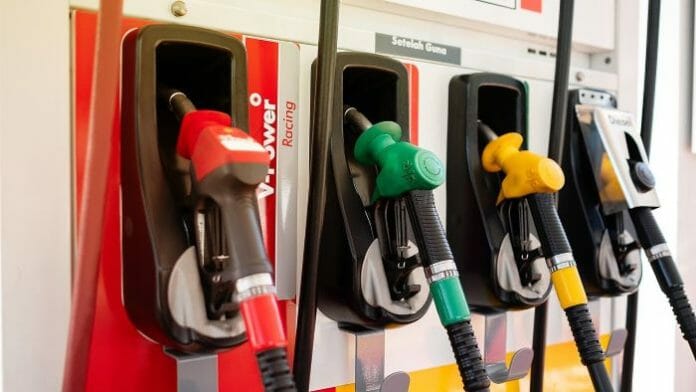The government is streamlining the retargeting mechanism of diesel and RON95 petrol subsidies to enable not only Malaysian citizens to benefit but also qualified local resident.
To a question directed at the Minister of Domestic Trade And Cost of Living (KPDN) in the Dewan Rakyat today (Mar 20) by Manndzri Nasib [Tenggara] on when would Government subsidised goods such as sugar, flour, petrol and so on, which are presently enjoyed by foreigners, would revert to its original purpose which is to provide subsidies to help ease the burden of Malaysian citizens, the ministry said, the sale of RON95 petrol to vehicles with foreign registration numbers is not permitted and the ban on the sale of RON95 petrol is applicable throughout the country.
Foreign vehicles can only fill up with RON97 petrol at petrol stations.
While for subsidised diesel, foreign vehicles can only fill up no more than 20 litres at gas stations within 50km of the Singapore and Thailand borders and 30km from the Indonesian and Brunei borders.
In the State of Perlis except for commercial gas stations, the sale of subsidised diesel to foreign vehicles is prohibited.
However, sales to local vehicles are also monitored and enforced to ensure that there is no fraudulent activity.
Meanwhile, subsidies on refined white sugar which were directly to paid out to manufacturing companies have been stopped since the end of 2013. Since then, refined white sugar has only been controlled through the publication of a control price for sale in the market.
Meanwhile, for the subsidy of wheat flour for general use, no subsidy claims are made by the producing companies starting from June 2022.
This is because the companies involved have withdrawn due to not being able to cover production costs, especially with the increase in world wheat prices.
BusinessToday Says: There seems to be a sense of avoidance in the answer given by the ministry as KPDN does not address the fact that foreigners are allowed to buy up subsidised items in the marketplace without question, which poses a bigger question whether these government subsidies actually reach the target market or vulnerable Malaysians, specifically from the B40 segment.









